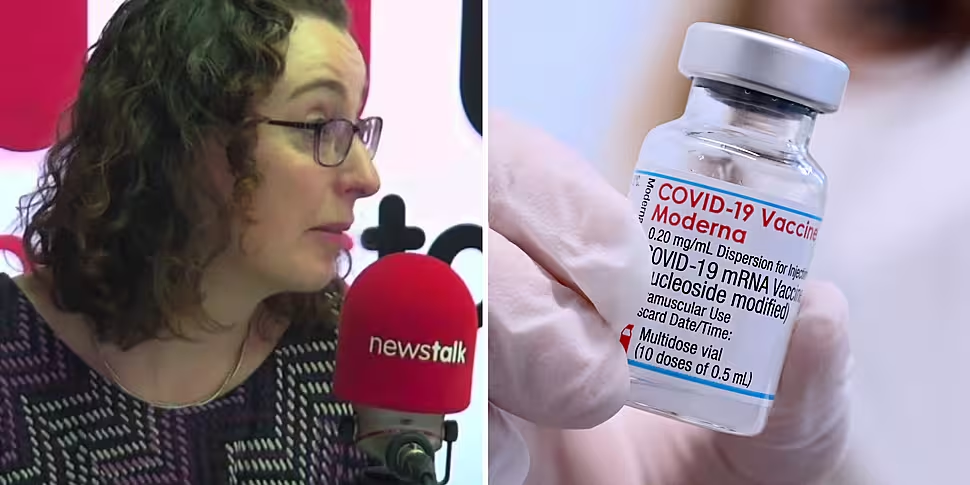The HSE has moved to reassure parents that COVID-19 vaccines are safe and effective.
Health officials are ramping up their information campaign, ahead of vaccine registration opening for children aged 12 to 15 next Thursday.
Teenagers will receive either the Pfizer or Moderna vaccines, the two mRNA-based vaccines.
On The Hard Shoulder, Dr Lucy Jessop - director of the HSE’s National Immunisation Office - answered listeners' questions about the vaccine.
One listener asked: “Why would I give an experimental vaccine to any of my children when they’re practically at no risk of COVID?”
Dr Jessop responded: “It’s no longer an experimental vaccine - it has been tested for quite a long time. I would encourage somebody to maybe look at those studies and see.
“It generally is a low-risk [virus] in children, so it really is up to that person to decide whether they want to offer [the vaccine] to their children or not.”
Dr Lucy Jessop on @TheHardShoulder answering the question 'why give an experimental vaccine to children when they're practically at no risk for COVID?' pic.twitter.com/OVtyR1oTDc
— NewstalkFM (@NewstalkFM) August 6, 2021
She said vaccines usually do take a number of years to develop, but these vaccines had the same amount of time put into them.
She said: “All the same steps were taken in terms of regulations - no corners were cut.
“By the time it came to us, there were big studies and we had quite a lot of evidence.”
Dr Jessop said she “completely understands” why parents have questions about the vaccines, but encouraged people to have a look at the HSE website with their families and consider what is the best option for them.
She said the vaccination is “strongly recommended” for children who are at high-risk of COVID-19, or who live with people who are at risk of infection.
However, she said for other parents this is really an individual decision for them and their child.
She said while the risk of serious illness is low for children, young people who do become ill with the virus will need to miss school and self-isolate.
Several listeners asked whether it’s safe to give the COVID-19 vaccine to teenagers who’ve recently received the HPV vaccine.
Dr Jessop said: “Obviously, this age group is those who’ve possibly just had HPV vaccine or are going to have it in the coming academic year.
“NIAC has said it’s fine to get these vaccines, even on the same day - you can have COVID and a different vaccine. There’s nothing to worry about… it’s perfectly fine to have them at the same time, or any other interval.”
Side effects
Meanwhile, other listeners are wondering whether children experience the same side effects from the vaccine as adults.
Dr Jessop explained: "In the main, they're the same: most of the side effects are mild to moderate and short-lived.
"[They're] the normal things you might think of with vaccines... a fever, sore arms, muscle aches, headaches, feeling unwell for a few days."
Rarer side effects include allergic reactions, while inflammatory conditions of the heart have been reported in very rare cases after the Pfizer and Moderna vaccines.
She said: "We do know those are a bit more common in younger people - around one in 100,000 for girls aged 12-17, and around one in 16,000 for boys.
"These are usually self-limiting, and people would recover from the condition. They might need some treatment in hospital, but they generally recover.
"We are making the clinicians aware of that, so they know what to look out for."









